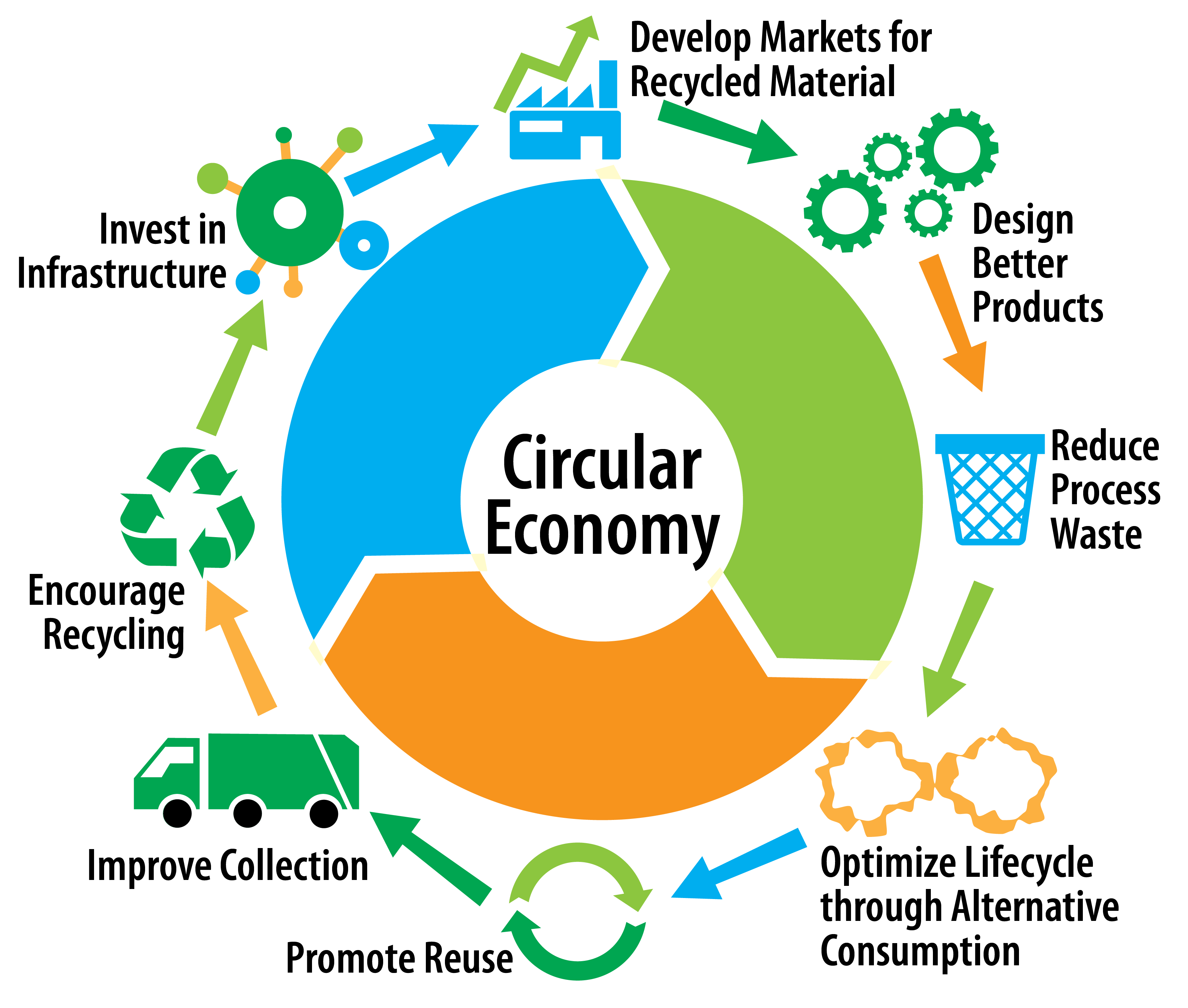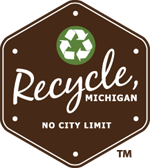WHY RECYCLE?
IN NATURE, NOTHING GOES TO WASTE
Take a tree, for example, it uses nutrients from the soil and energy from the sun to grow. Leaves fall and the tree eventually dies, returning those nutrients and energy to the soil for other organisms to use. The tree wastes nothing throughout its life. We call these processes “cycles,” because they are just that – a constant exchange of energy used to grow.
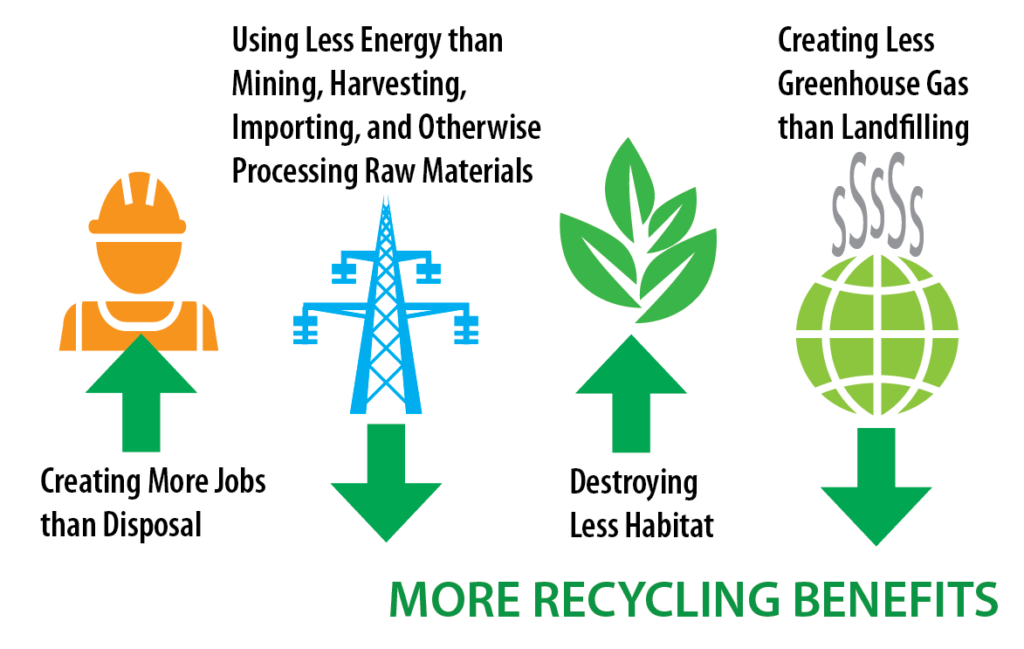
We, on the other hand, generate waste all the time. We have curbside service to pick up our waste and take it away, but where is away, exactly? Generally, “away” means being transported to a landfill or incinerator, both of which require more resources like land and energy to maintain the process of removing material from your curb.
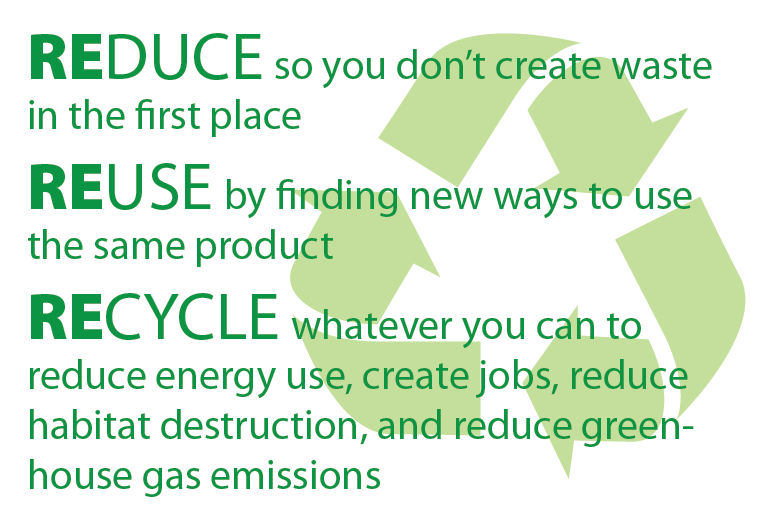
By recycling, we operate in a more natural way. By recycling, what we waste is cycled back into useful products. Recycling isn’t perfect; it requires resources, energy, and facilities to maintain. It does, however, reduce the amount of material being stored in a landfill or burned in an incinerator.
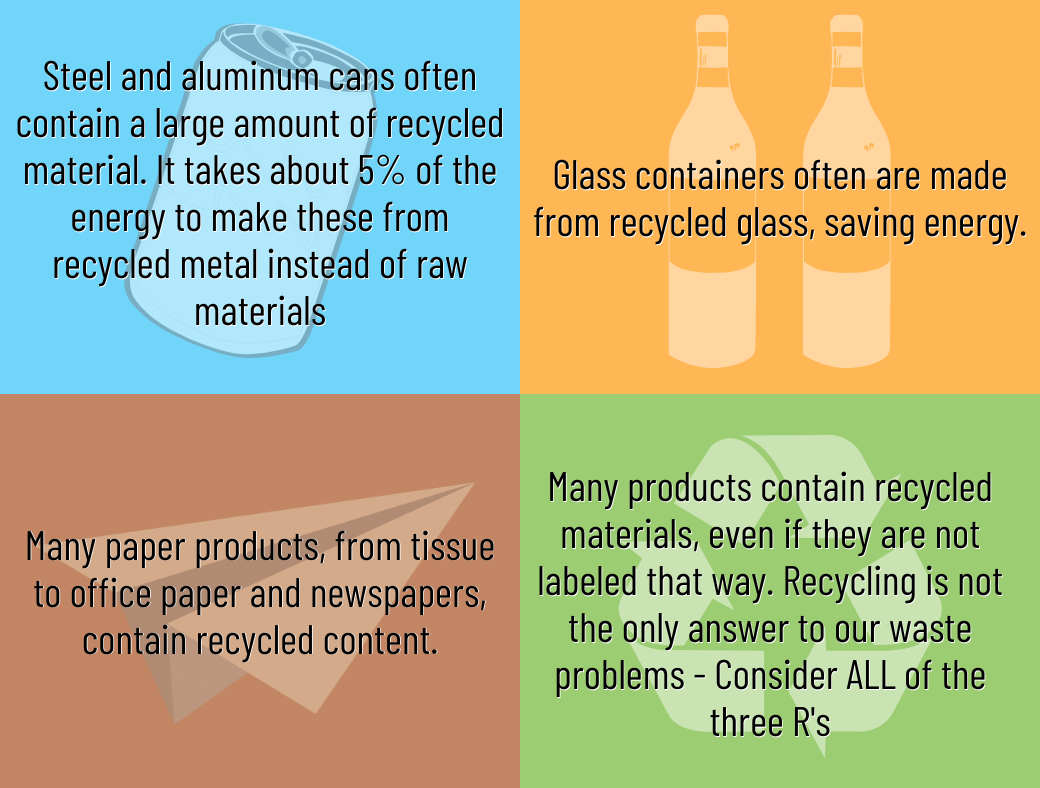
This video was produced by MRC Member Emmet County Recycling. It explains one of the many reasons why recycling is important. Please watch!
CIRCULAR ECONOMY
Michigan is well-positioned to grow its circular economy—a systems approach that emphasizes growing markets for recyclable materials so they are (re)used by Michigan workers and business to make new products, rather than taken to landfills or other disposal facilities. Think of a time when you used a disposable coffee cup, maybe you threw it away when you were done. A circular economy approach would design the cup for recyclability in the manufacturing process so when you're done with your drink, the cup may be recycled. From there the recyclable commodity goes back into the recycling stream where it can be reprocessed into another usable product, sometimes even another coffee cup, reducing the amount of resources expended from raw material to end of usable life.
